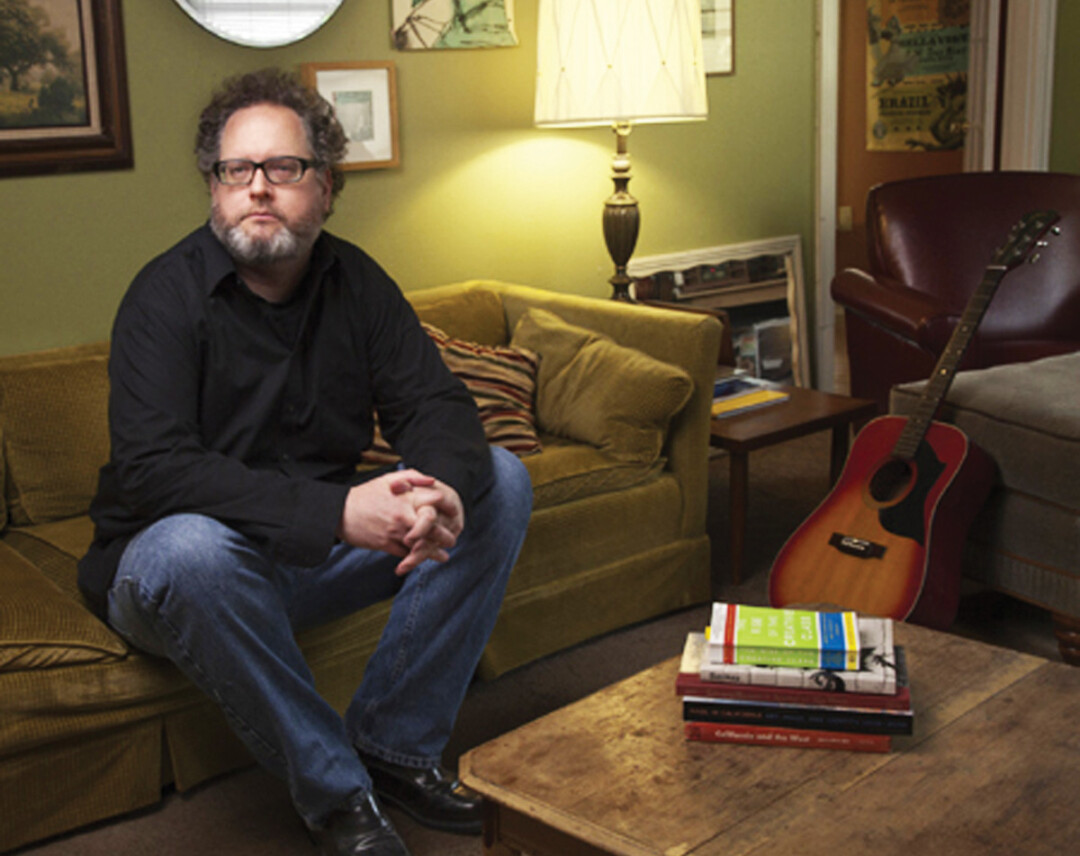The State of the Scene: A chat with music scene expert Michael Seman

Last week, Visit Eau Claire hosted a Music City Summit at the newly opened Oxbow Hotel and Lakely restaurant. The afternoon involved several panels of local musicians, business people, music teachers, city councillors, and tons of stakeholders in Eau Claire’s robust music scene talking about ways to foster musicians and grow the city’s economy by uplifting our musicians. The keynote speaker of the event was Michael Seman, director of creative industries, research and policy at the University of Colorado Denver College of Arts and Media. Seman has done research on music scenes all over the country, finding out what makes them successful economic drivers for their respective cities. We caught up with Seman after the event to have a quick chat about our music scene, what we’re doing right, and what our next steps are.
VOLUME ONE: You’ve studied a lot of music scenes in cities all over the country. I’m looking to see if you see some concrete similarities between what’s going on in places like Omaha and Denton and what’s going on here in Eau Claire.
MICHAEL SEMAN: Omaha, Eau Claire, and Denton are very similar in that they have fairly robust bands that have decided to invest back in their community. That is not unheard of, but that’s seeming to be the new way and I attribute that to the fact that bands are looking to become more sustainable, and they realize they need to look in different places.
Because record sales aren’t what they used to be? I suppose you have to diversify in order to make some money.
Yeah, if you look at LCD Soundsystem, James Murphy opened a successful wine bar in New York. Stuff like that. There is this similarity of successful bands in cities that are small to mid-level having a passionate connection with their city, wanting to stay and invest. That’s the trend I’ve been seeing. The Flaming Lips, that’s the weird story. That’s another band that’s like “We love our city, we’re not moving.” I’m fascinated by the small to mid-sized cities where this is happening.
“You absolutely have to be concerned with your next crop of musicians and how to develop them. I would strongly suggest an all-ages DIY venue, something that addresses people under 21 and gives them a chance to grow as musicians.” – Michael Seman on Eau Claire’s next steps
You’re in a unique position, because in your work you talk to city folks all the time, people that are involved in city government. But you’re a musician yourself, and you really understand the musician’s perspective and the musician’s role in all this. What’s your advice for musicians, and what’s your advice for city people?
For city people, you should look at the musicians in your town in two different lights. One, as the artist, the content creator, the aesthetic driver – then there’s also the graphic designer, the teacher, the lawyer, the doctor, because chances are they’re one of those too. Yes, there’s a percentage of musicians that want to be professional full-time rock stars, but they’re multifaceted individuals. For musicians, I always advise them not to be afraid to talk to city people. They probably want to know how they can help, but you’ve got to present yourself first. Russell Simmons, his advice was the best: If you truly believe in what you’re doing, it has value. Be patient and don’t quit. And that goes for anyone.
So what’s something you can point to that Eau Claire needs to work on? Or what should our next steps be as a music city that wants to take this stuff more seriously?
You absolutely have to be concerned with your next crop of musicians and how to develop them. I would strongly suggest and all-ages DIY venue, something that addresses people under 21 and gives them a chance to grow as musicians. You have a great house show scene; people know that all over the country. But as we all know, house shows go up and they go down – it’s cyclical. When you have a dedicated space that’s all ages like that, it gives you that continuity. You’re also helping to train kids to be in bands, to be sound engineers, to work door, to promote – a good promoter is worth their weight in gold. And we all know that time between when you’re 16 and 21 is when you are most into being a musician, being in a scene, and pushing things forward. For Eau Claire, if you can attract that age group to being a participant in a music scene – which is by-and-large being a participant in your city – and you form these visceral connections, there’s a good chance those young men and women are gonna think “I’m having a great time in Eau Claire, maybe I’ll go to the University of Wisconsin Eau Claire” and they continue this. When they graduate, if they’re still involved in the music scene – a lot of people who start out in music scenes that way usually do stay involved – they may decide “You know what, this is great. I’m gonna continue to stay in Eau Claire and look for a job here.” Or, what I’m seeing is people starting their own companies and entrepreneurial pursuits. So I can’t stress enough how important it is to capture that younger crowd and foster them proactively. You’ll find that they become a pivotal item of your community at large as they get older.




















